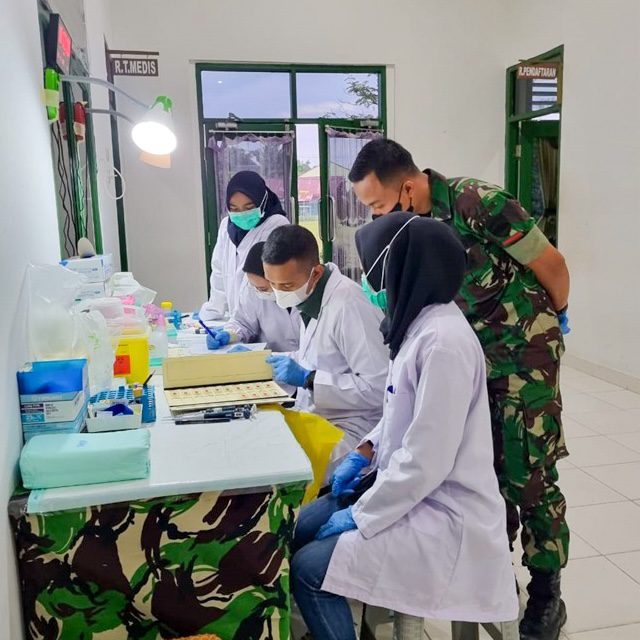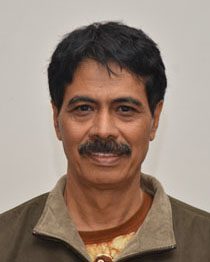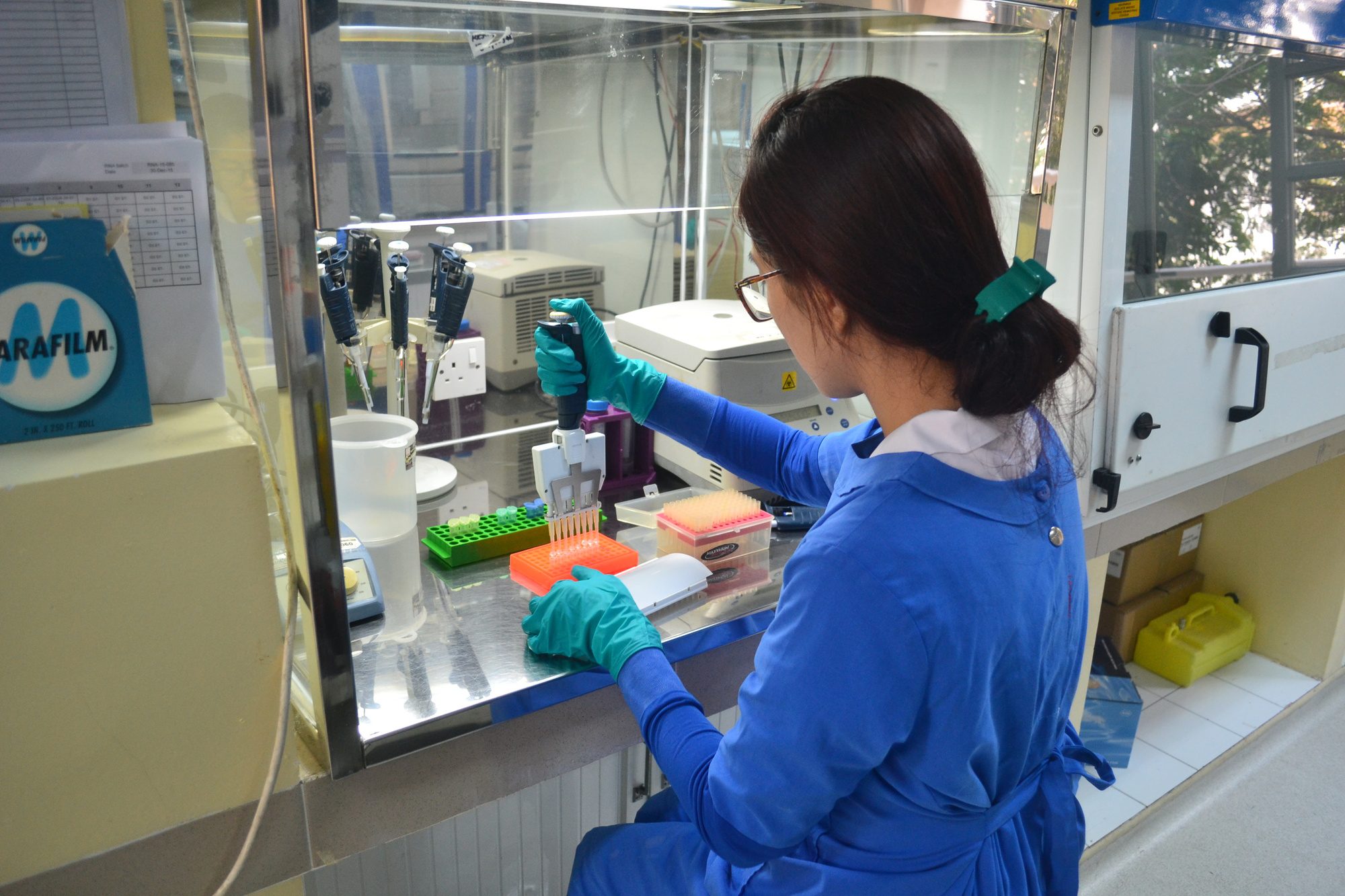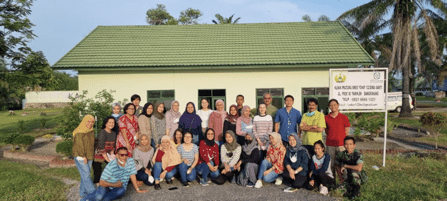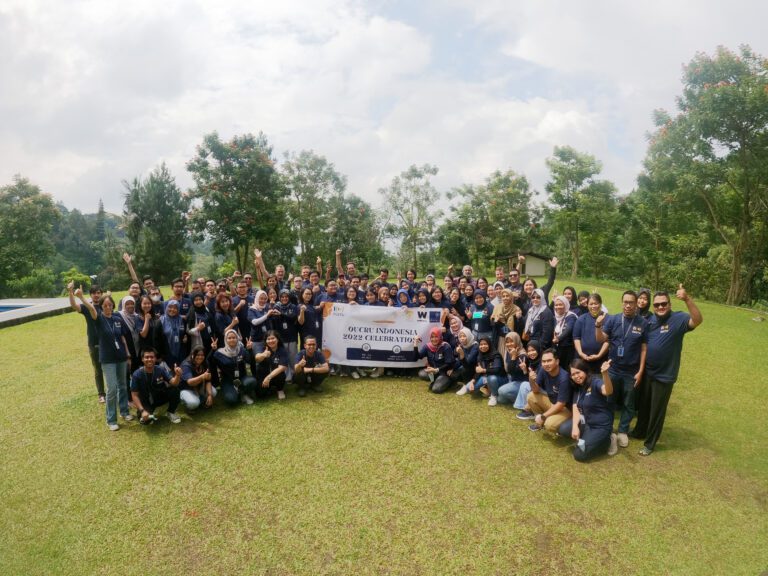In a major achievement, the Faculty of Medicine Universitas Indonesia (FMUI) and OUCRU Indonesia have completed a phase 2 clinical trial for two new malaria vaccines developed by Sanaria Inc. This is the first malaria vaccine trial ever conducted in Indonesia and the first in the Asia-Pacific region in over 30 years.

Groundbreaking Research in Malaria
The trial included 345 Indonesian soldier volunteers from Battalion 132 in Bangkinang, Riau Province, Indonesia. These soldiers received either one of the new malaria vaccines or a placebo before traveling to Keerom District in Papua Province, an area where malaria is endemic. The goal was to see how well the vaccines protected people who had never had malaria before.
Prof. Erni J. Nelwan from FMUI, the Principal Investigator of this trial, said, “This study is groundbreaking because it involved a malaria-naive population traveling to an endemic region. By vaccinating soldiers who had never been exposed to malaria, we were able to truly test the effectiveness of these vaccines in a real-world setting.”
Second Lieutenant Kennedi Siregar from Battalion 132 also noted the importance of this study, both for the public and, more specifically, the Indonesian Army. “Our soldiers are frequently deployed in remote areas across the country, especially in malaria-endemic areas. Malaria is a challenge for us. Being involved in this study has helped us understand this disease better; we now know better how to diagnose and treat it properly.”

The soldiers were vaccinated between May and September 2022 and then deployed to Keerom District. During their time there, the research team treated over 700 malaria cases and continued to monitor the soldiers for six months after their return, treating another 300 cases.
The New Malaria Vaccines Tested
The two vaccines tested were Sanaria® PfSPZ and Sanaria® PfSPZ-CVac. Both used live malaria parasites from the West African strain that were weakened by different methods. The Sanaria® PfSPZ vaccine used parasites weakened by radiation, while the Sanaria® PfSPZ-CVac vaccine used parasites weakened by chloroquine that was given orally to study participants.
The Sanaria® PfSPZ vaccine was found to be safe and well-tolerated, similar to a saline placebo. The Sanaria® PfSPZ-CVac vaccine also showed good safety and minor side effects. Both vaccines offered protection against malaria caused by the Plasmodium falciparum parasite found in Papua, which is different from the strain that made up the vaccine.

Partnerships are Key to the Trial’s Success
The trial was made possible through a partnership between the Faculty of Medicine Universitas Indonesia, OUCRU Indonesia, the Indonesia Army Health Center, and the Eijkman Molecular Biology Research Center of the National Research and Innovation Agency.

Director of OUCRU Indonesia, Prof. J. Kevin Baird, emphasized the importance of partnerships with local institutions in finding global solutions for infectious diseases, including malaria. “Malaria is a significant problem both globally and in Indonesia. Our work at OUCRU Indonesia focuses on collaborating with local partners to find effective solutions against infectious diseases that can be adopted around the world. The success of this trial is a testament to the power of these partnerships and a crucial step toward eliminating malaria,” he said.
Dean of FMUI, Prof. Ari Fahrial Syam, also highlighted the collaborative effort behind the trial, saying “The phase 2 clinical trial of the malaria vaccine is crucial research in vaccine development. Hopefully, the clinical trial can continue so that the existence of this vaccine can truly benefit efforts to eradicate malaria in Indonesia and the world. FMUI continues to support various clinical trials of OUCRU Indonesia, continuing the cooperation that has been ongoing for the past 13 years.”
The Next Steps
The Chief Medical Officer of Sanaria, Thomas L. Richie, expressed his excitement about the results and shared Sanaria’s plan to create an improved vaccine. “We are thrilled with the trial’s promising results, especially the vaccines’ ability to protect against a different malaria strain than the one used to create them. This cross-strain efficacy is crucial for global malaria eradication, as there are many malaria species around the world. Building on these findings, we are developing a next-generation vaccine called PfSPZ-LARC2, hopefully showing even better results,” he explained.
The detailed results of this study, funded by the Congressionally Directed Medical Research Program (USA) and led by Prof. Erni J. Nelwan from FMUI, will be published after peer review later this year. This trial marks a significant advancement in the fight against malaria, demonstrating the potential of innovative vaccines to combat this deadly disease on a global scale.



